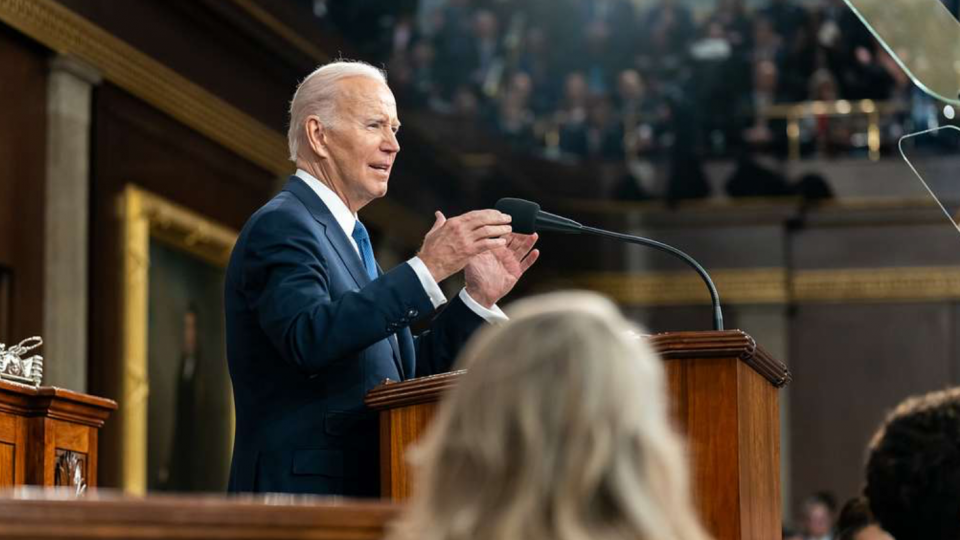
US President Joe Biden has outlined his ambitions for comprehensive tax reforms targeting large corporations and private equity funds, with the market’s attention remaining steadfastly on interest rates.
President Biden’s ideal scenario would see businesses shouldering higher tax burdens, a reduction in executive compensation, and a quadrupling of the costs for shareholder buybacks.
“I’m a capitalist. If you’re keen to make millions, that’s fine, but please pay your taxes honestly,” Biden stated during his 2024 State of the Union address, prior to unveiling his tax proposals, whimsically dubbed a ‘letter to Father Christmas’ by some US media outlets.
His proposal for the fiscal year 2025 aims to cut the budget deficit by $3 trillion over the forthcoming decade and would see taxes increase by a net total of $4.9 trillion, 7 per cent above what would be collected without these policy changes.
Reforms
Biden seeks to substantially reverse the 2017 business tax cut introduced by Trump, which would elevate the top rate from 21 per cent to 28 per cent. Moreover, US companies taxed on income earned overseas would face a doubled rate from 10.5 per cent to 21 per cent. “These reforms are designed to ensure profitable multinationals, including Big Pharma, contribute their fair share,” according to a statement from the White House.
Should the Democrats prevail, there would also be a cut in the so-called “carried interest” used by private equity funds to minimise their taxes. At present, private equity fund managers can pay a capital gains tax of 20 per cent on a portion of their income, rather than at the top individual income rate of 37 per cent. Biden’s proposal seeks to abolish this advantage entirely.
The president further proposes to hike the tax on share repurchases, a concept introduced last year in Biden’s Inflation Reduction Act. This move would increase the rate from 1 per cent to 4 per cent, aiming to reduce the tax disparity between share buybacks and dividends, thereby encouraging firms to invest in their own growth and productivity “rather than channelling tax-advantaged profits to overseas shareholders,” the White House explained.
‘Wishful Thinking’
Nonetheless, the realisation of these proposals hinges on several political variables, including Biden’s re-election, the Democrats retaining their majority in the Senate, and recapturing the House. Currently, the market is sceptical about the prospects of these plans materialising.
This scepticism stems from the current Congressional layout, with Republicans in control of the House, which is set to propose its own budget, making no mention of tax increases. House Republicans have branded Biden’s plans as a “roadmap to accelerate America’s decline,” presenting an alternative proposal last Thursday aimed at eliminating $14 trillion in budget deficits within a decade.
James Knightley, Chief Economist at ING, suggested that any proposals from Biden are likely to be diluted, even in the event of an electoral victory. The market is also keenly awaiting Donald Trump’s plans for broad tax reductions and tariff hikes, which remain somewhat vague at this stage, Knightley noted.
“As the election draws nearer, fiscal policies will begin to exert greater influence, but for now, we are still too early in the process, and the market is more concerned with the immediate outlook for interest rate reductions,” Knightley commented.



